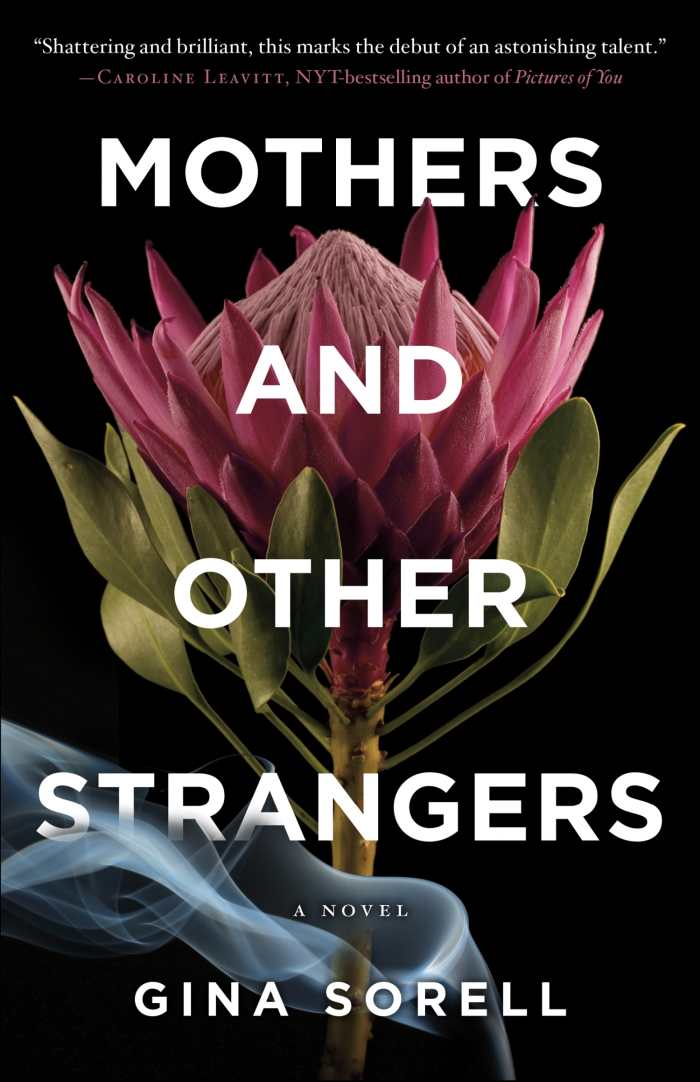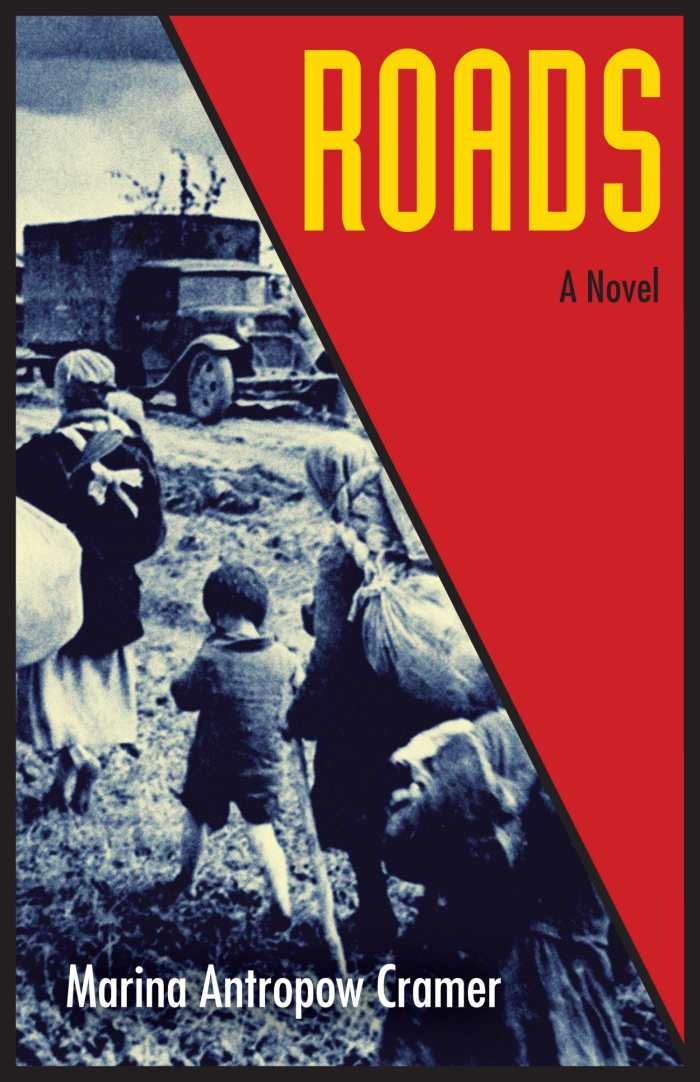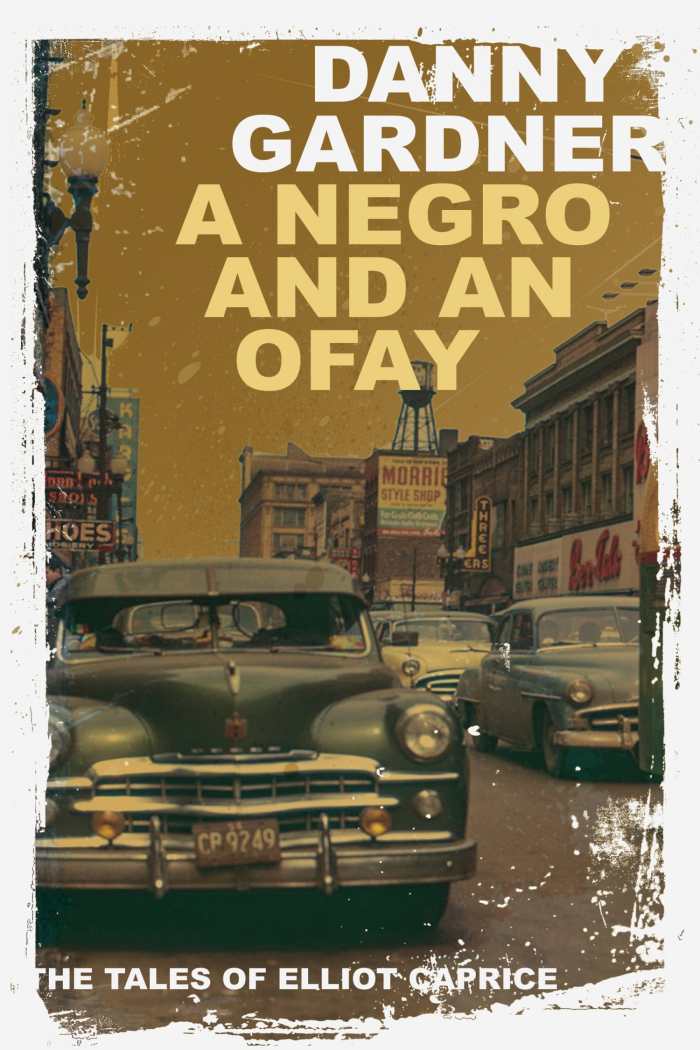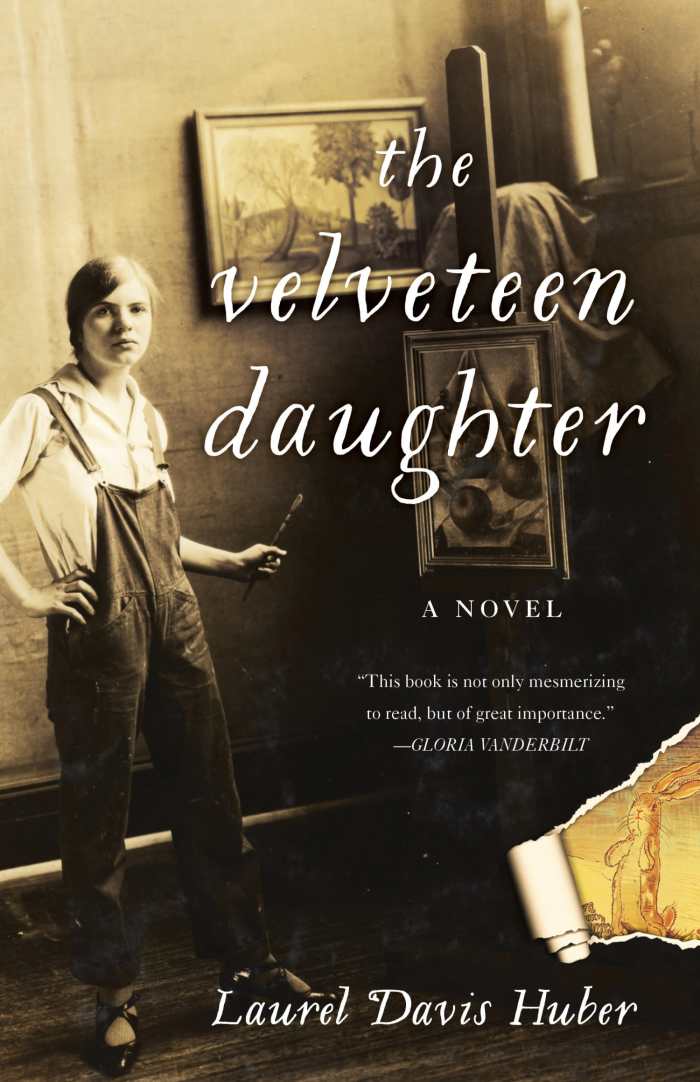The Ties That Bind
War, internment, illness, racism, failed relationships, all kinds of loss: it’s a catalogue of what troubles us, the shadow side of humanity we just can’t seem to shake. In these debut novels, shadows are plumbed to find the ties that bind people to communities, to families, and to self. The diverse range of characters and circumstances explored in these novels bears witness to the necessity of navigating those ties, especially when they’re messy, even when they tie us in knots.
Mothers and Other Strangers

Gina Sorell
Prospect Park Books
Softcover $16.00 (320pp)
978-1-938849-89-3
Buy: Local Bookstore (Bookshop), Amazon
All her life, Elsie Robins has had mysterious dreams of South Africa, a fire, and the death of her beloved nanny. Suddenly, the dreams are worse than ever although she’s thousands of miles and several decades past those early days. While she’s never been able to explain “what it felt like to be incomplete, to long for something and someone you hardly knew, and yet were wise enough to know that its absence defined you,” Elsie must decide if she’s brave enough to face the void inside her—a void looks suspiciously like the past—in Gina Sorell’s Mothers and Other Strangers.
Out of the blue, Elsie is notified that her mother, Rachel Robins, has died of cancer. Shocked but not surprised she’s been left in the dark, Elsie returns home to Canada to wrap up her mother’s affairs. As Elsie sorts through Rachel’s apartment, she confronts the fact that her mother “had been telling lies her whole life, doling out pieces of the truth to different people, but never enough so they’d have the whole picture.” Even so, Elsie holds out hope for some clue about who Rachel really was. When a neighbor gives Elsie her mother’s last bequest—a photograph and a box containing the very clues Elsie’s been looking for—it seems that her wish is granted. However, the box only offers more questions, leaving Elsie to decide whether or not she wants to seek answers.
Like many people, Elsie Robins is getting over a relationship, but it’s her relationship with her mother that’s failed. Sorrel’s haunting exploration of that failure is the saddest love story in the world, filled with all the yearning and unrequited love of a feral child trying to attach to a narcissistic parent. Mothers and Other Strangers gets at the raw truth of survivorship, showing that even when the past is buried, it never truly dies.
LETITIA MONTGOMERY-RODGERS (May 9, 2017)
Miss Portland

David Ebenbach
Orison Books
Softcover $18.00 (236pp)
978-0-9964397-1-8
Buy: Local Bookstore (Bookshop), Amazon
Unlike other people, Zoe Tussler knows that life is perfectible, and she knows this because of Maine. Thus begins David Ebenbach’s Miss Portland, winner of the 2016 Orison Fiction Prize, a moving paean to becoming the place where you belong.
Zoe’s life has been a quest for meaning, driven by the manic highs and throttling lows of bipolar disorder. She’s followed her inner compass to some far-flung places before, but, unlike in those prior incidents, she’s sure her precipitous departure from a stable job in Philadelphia for a life with her Kripalu guru in Portland, Maine, is different. Part of what she’d “realized recently—part of the reason that Portland was the answer and not just another thing—was that you couldn’t get yourself right by depending on another person. It had to be you. But you doing what? That was the question.”
Zoe’s attempt to answer this question and create her own personal theory of everything is neither a symptom of her mental illness nor separate from it. The dualities in her situation—moving to Portland to live with her guru but not depending on him for her sense of self, quitting therapy and medication cold turkey but monitoring herself for signs of her bipolar cycle—offer a complex, intimate, and deeply humane portrait of a person whose experience of the world is both alternate and poignantly familiar.
Ebenbach captures a profound vulnerability in Zoe’s dichotomies. At the heart, Zoe wants to root and connect. While she grasps at straws with one hand, she offers whatever she’s managed to grasp with the other. Rather than discourage her, Zoe’s difference sharpens her conviction. Yet, as Zoe’s story unfolds, Ebenbach’s sensitive portrayal resists easy answers or convenient endings. Zoe’s quest for a happy ending may take her to Portland, Maine, but, ultimately, it leads her back to herself.
LETITIA MONTGOMERY-RODGERS (May 9, 2017)
After the Bloom

Leslie Shimotakahara
Dundurn
Softcover $21.99 (328pp)
978-1-4597-3743-3
Buy: Local Bookstore (Bookshop), Amazon
When After the Bloom opens, Rita Takemitsu is, once again, cruising the streets looking for her mother, Lily. But as time passes with no sign of Lily, a new urgency infuses the old familiarity. Fourth-generation Japanese-Canadian author Leslie Shimotakahara unpacks that anxiety as Rita tracks down Lily and discovers a legacy of Japanese internment during World War II.
Lily had “wandered off before and had always come back. It was the trademark of women of her generation: despite their veneer of stoicism, deep-down anger simmered. They were tired of doing everything for everyone, sick of life as doormats. So from time to time, they blew off steam, hit the road. All mothers did this—or felt like doing this—didn’t they?” Investigating her underlying assumptions takes Rita into the alien geography of her mother’s history, where secrets abound about Rita’s family and their ties to US internment camps. Soon, it becomes clear that Rita’s mother disappeared long ago, and the fact that she’s currently missing may actually be Lily’s final effort to save herself.
Shimotakahara understands the destabilizing effects of trauma, not just on the survivors, but on those around them. Rita’s driven to find Lily, but there’s a lot of distance to cross. Over the years, the family has achieved success. Yet it’s Lily’s unspoken trauma that’s shaped them, beginning in Rita’s impoverished childhood and extending to her adult discomfort about whether to hide or reveal who the Takemitsus are when they’re at home.
\
After the Bloom offers characters of exacting specificity, ones who destroy pat generalizations and reveal the particular people, families, and faces that were stereotyped, amassed, depersonalized, and sometimes destroyed by this oft-overlooked moment in history. Lily’s disappearance opens the ruptures—literal and metaphorical—that occur as part of intergenerational trauma in a story that offers its own brutal, beautiful reparation.
LETITIA MONTGOMERY-RODGERS (May 9, 2017)
Roads

Marina Antropow Cramer
Chicago Review Press
Softcover $15.99 (368pp)
978-1-61373-556-5
Buy: Local Bookstore (Bookshop), Amazon
War is always an agent of change, but never more so than for schoolmates Filip and Galina. It’s World War II, and, to protect Filip from being drafted, Galina agrees to marry him when he turns eighteen. Marina Antropow Cramer’s Roads follows the evolution of this Russian family in Yalta from the brink of the Bolshevik Revolution to the immediate aftermath of World War II and asks what roads people will walk down to survive.
Filip and Galina’s precipitous decision pulls Filip from his comfortable position as the only child of a well-to-do Party family into the household of his peasant wife. As the war enters its nadir, the family, desperate to survive, volunteers for relocation to Germany as farmers. In transit, they discover they’ve been tricked. They survive forced labor camps only to end up as political refugees, perceived as a threat by Germans and Soviets alike. Barely able to make a life in postwar Germany yet equally unable to go home, the long road through the war leads this family to unexpected places.
The role of status and privilege looms obliquely throughout the novel, especially as the family is pushed farther and farther to the margins of society. Cramer explores the dynamics of privilege in interesting ways, but nowhere as dramatically as in the various characters’ reaction to their changing circumstances during this period of massive upheaval. With more than apt characterization, Cramer explores characters’ adaptability as social critique.
Roads is a subtle investigation of war and everyday people struggling to find refuge. In the case of Filip, Galina, and the family that forms around them, Cramer deftly illustrates the price ordinary citizens pay once the war machine is in motion. When the resolution is reached, it hovers, a tenuous moment that leaves some characters with new strength and others poised to plummet and break.
LETITIA MONTGOMERY-RODGERS (May 9, 2017)
A Negro and an Ofay

Danny Gardner
Down & Out Books
Softcover $17.95 (288pp)
978-1-943402-67-0
Buy: Amazon
It’s 1952, and Elliot Caprice is a man on the run. He owes people: the mob, the Chicago police department, political operatives in Washington, DC. He’s managed to stay one step ahead of everyone until, one day, the racial taunts are too much. He gives better than he gets and finally ends up in jail for his efforts. Luckily, the same people Elliot owes are powerful and still have a vested interest in getting something out of him. What they want and what they get are different matters, as Danny Gardner shows in A Negro and An Ofay: The Tales of Elliot Caprice.
Elliot is sprung from jail by attorney Mike Robin, son of the local crime lord, and unceremoniously delivered back to his hometown. Once home, everything and nothing is the same. The family farm faces foreclosure. Important childhood figures have been replaced by Elliot’s former playmates. And the politics, here and everywhere else, still remain.
To clear his debts, Elliot works as a process server for Mike and his paralegal lover, Elaine Critchlow. Elliot has legitimate grievances, and Gardner allows him vengeance but not martyrdom. Although Elliot initially holds his job and employers at a distance, Elliot soon discovers that he’s not the only one with a complicated past. Neither is he alone in trying to make a future. Despite himself, Elliot connects with people again, and when his past catches up with him, he’s finally ready to face it on his own terms.
Gardner’s hard-bitten crime drama is candid, unflinching, and full of gallows humor. As Elliot says, “You avoid surprises by being the surprise,” and Gardner’s hero is just that—a bright new entry in the genre, ready to take on the world in word and deed. Debts owed, lines drawn, claims made, Elliot settles up and finds a way to live the life he can’t outrun.
LETITIA MONTGOMERY-RODGERS (May 9, 2017)
The Velveteen Daughter

Laurel Davis Huber
She Writes Press
Softcover $16.95 (300pp)
978-1-63152-192-8
Buy: Local Bookstore (Bookshop), Amazon
“You become. It takes a long time. That’s why it doesn’t happen often to people who break easily, or have sharp edges, or who have to be carefully kept,” explains the Skin Horse in the children’s story The Velveteen Rabbit. Using this and other historical documents, Laurel Davis Huber’s The Velveteen Daughter explores the relationship between Margery Williams, author of The Velveteen Rabbit, and her daughter, Pamela Bianco, a now-forgotten artistic prodigy.
Alternating between passages narrated by Margery and Pamela, the novel begins in Pamela’s childhood as she’s poised on the brink of discovery and a precipitous rise to international artistic fame and chronicles their extraordinary family across several countries and decades. At the center of the family’s world is Francesco, Margery’s husband and Pamela’s father, a man who uses his family’s talent for his own ambitions. And both Margery and Pamela adore him. In service to their adoration, neither is as forthright as she could be with the other, both swallowing their own needs and, to some degree, performing for Francesco.
Margery, a woman who’s defined by her acumen with language, supports but cannot name or completely cope with the mental-health challenges of her family, whether it’s those of her child-prodigy daughter or her beloved, mercurial spouse. Meanwhile, Pamela chases her genius in order to please the family while struggling to define the difference between herself, her personal struggles, her career, and her artistry. Amidst all that goes unsaid, Huber reveals decades of a complex, persistent love that’s equal parts great strength and besetting weakness.
This is not a mother-daughter story about villains and victims; these women move through each other’s lives like sun and moon, both illuminated and shadowed by the other. Huber’s richly textured language is a wonder to behold, her prose every bit as luminous, inspired, and wise as either Bianco’s or Williams’s own work.
LETITIA MONTGOMERY-RODGERS (May 9, 2017)
Shtum

Jem Lester
The Overlook Press
Hardcover $26.95 (320pp)
978-1-4683-1472-4
Buy: Amazon
Shtum is a Yiddish word meaning noncommunicative or silent, and that’s where Ben Jewell finds himself in British author Jem Lester’s novel of the same name. Ben’s world is comprised of his autistic son, a troubled marriage, an estranged relationship with his Holocaust-survivor father, a failing business, and his own entombed emotions. So often, the solution to life’s problems is to talk about it, but what can Ben do when there seems to be no hope of breaking through the silence?
Ben’s mornings start with his wife stationed in the kitchen while he cleans up his son, Jonah, “his reeking pajamas. The aromatic nappy and soiled wipes tied in a plastic bag … she deals with what goes in and I deal with what comes out.” And the day doesn’t usually get better from there. That’s because his ten-year-old son has complex Autism Spectrum Disorder, and with all his resources tapped, Ben’s way forward seems less about making choices than scraping together what’s left and facing the onslaught.
After a decade of caring for their son, Ben and his wife are realizing that life with Jonah will not get better. With his marriage on the rocks and his head in a bottle, Ben finds himself back in his father’s home, trying to heal himself and care for his son. As things fall apart, Ben’s world narrows to advocating for Jonah and learning to parse the nature of silence.
Lester renders a moving portrait of one parent’s struggle to navigate the world on behalf of his child. As Ben shoulders the burdens his family carries, Lester shows how draining it can be to do the difficult work of accepting and loving each other. Ultimately, Ben discovers that, while some silences need to be broken, others must be accepted if he’s to understand himself and those he loves.
LETITIA MONTGOMERY-RODGERS (May 9, 2017)
Secrets of Southern Girls

Haley Harrigan
Sourcebooks
Softcover $15.99 (400pp)
978-1-4926-4755-3
Buy: Local Bookstore (Bookshop), Amazon
Haley Harrigan’s Secrets of Southern Girls opens with a confession: “It’s not your fault she’s dead. It’s the same thing Julie has told herself, over and over, for ten years. But it’s a lie, and she knows it.” From that point on, Julie Portland’s story falls apart as she finally faces a death that might not be the murder it seems.
It’s been ten years since Julie Portland graduated high school and left Lawrence Mills, Mississippi, for New York City. It’s also been ten years since she buried her best friend, Reba McLeod, but Reba won’t rest easy. Already haunted by Reba’s death, when Reba’s old high-school boyfriend, August Elliott, tracks Julie down and insists she help him find Reba’s missing diary, she relents—despite the fact that finding the diary requires them to return to the scene of the crime: home.
August’s insistence might be driven by his need for closure, but, first, it breaks everything open. Julie’s movement toward the truth is mirrored by a steady progression through Reba’s journal entries. As Julie gets closer to the truth, she must confront her long-held assumptions about who Reba really was and who she needed Reba to be.
Harrigan is a great prose stylist who knows how to sustain the tension and tone required of a Southern Gothic novel. Her writing is evocative and atmospheric, whether the action takes place under the bright lights of Manhattan or in Mississippi’s weedy heat. As the story shifts between Julie and August’s search and entries from Reba’s missing diary, past and present are bridged, and the shadow side of friendship, family, and memory emerges. Harrigan’s world is, in Reba’s own words, “like being immersed in a fairy tale. Its intricacy was maddening and stifling … all disturbingly beautiful.”
LETITIA MONTGOMERY-RODGERS (May 9, 2017)
Letitia Montgomery-Rodgers

